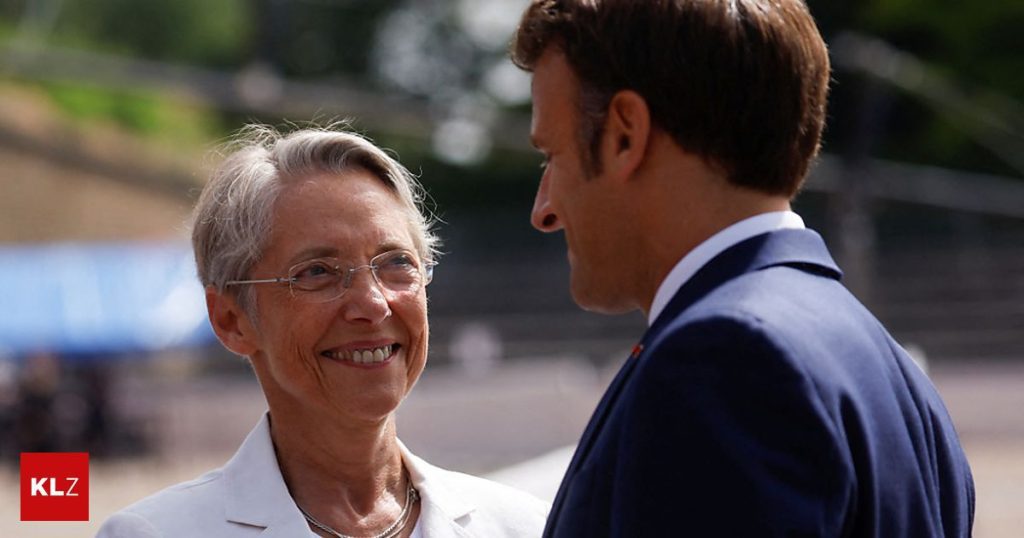From the initial reactions of the party leaders involved, there was initially no solution in sight. Macron was rejected by conservative Republicans. After talks with Macron in Paris on Tuesday, party leader Christian Jacob said his party “will not enter into an agreement or a coalition”.
“I am not German, we have a different political system,” conservative Jacob told France Inter before speaking to Macron. In France, coalitions have been unusual so far. Since Macron’s electoral coalition, located in the political center, has lost its absolute majority, an alliance with the Republicans would be the obvious choice – at least in purely mathematical terms. However, the Conservative Party leadership quickly made it clear to former President Nicolas Sarkozy that they wanted to remain in the opposition. “We are not the spare wheel,” Jacob stressed.
Meanwhile, Macron on Tuesday morning rejected Prime Minister Elizabeth Borne’s resignation request. The Élysée Palace announced that it wanted her to remain in office and for the government to remain able to act. The resignation of the current government after the parliamentary elections in France is the usual and most official, but now the situation is special. In Sunday’s election, the president’s centrist camp won not an outright majority, only a simple majority, a situation that has not existed in France for more than 30 years.
A cabinet meeting scheduled for Tuesday has been cancelled. Instead, Prime Minister Burnie invited ministers to a cabinet meeting in the afternoon. Two female ministers and a state secretary in the current government should vacate their posts anyway because they didn’t win their constituency in Sunday’s election. Macron put this rule in place before the elections. A government reshuffle is expected in the next few days. The party or group in parliament that Macron gets support for is likely to have an impact. Whether Bourne will remain at the helm of government in the long term is an open question.
According to the provisional official final result, Macron’s camp won 245 out of 577 seats on Sunday, thus losing an absolute majority. The New Left Alliance, led by leftist politician Jean-Luc Melenchon, won 131 seats. The right-wing National Rally party led by Marine Le Pen won 89 seats. The traditional CHP and its allies won 74 seats, a bitter loss.
Leftist politician Melenchon continued to nibble at granite on Tuesday with his attempts, which he had begun the day before, to move into Parliament with the Left Alliance as a joint group. On the other hand, Socialists, Communists and Greens continue to insist on the rule that each party operates independently in Parliament. This reduces the influence of Euro-skeptics Mélenchon. And his left-wing party alone is the third strongest force in parliament after the right-wing National Rally and the center camp led by Macron. Left alliance with all partners together will be the strongest opposition group.

“Food practitioner. Bacon guru. Infuriatingly humble zombie enthusiast. Total student.”








More Stories
Kyiv: Russian Kursk offensive halted
US Presidential Election: Former US Government Officials Warn Against Donald Trump's Election
Netherlands wants to leave asylum system